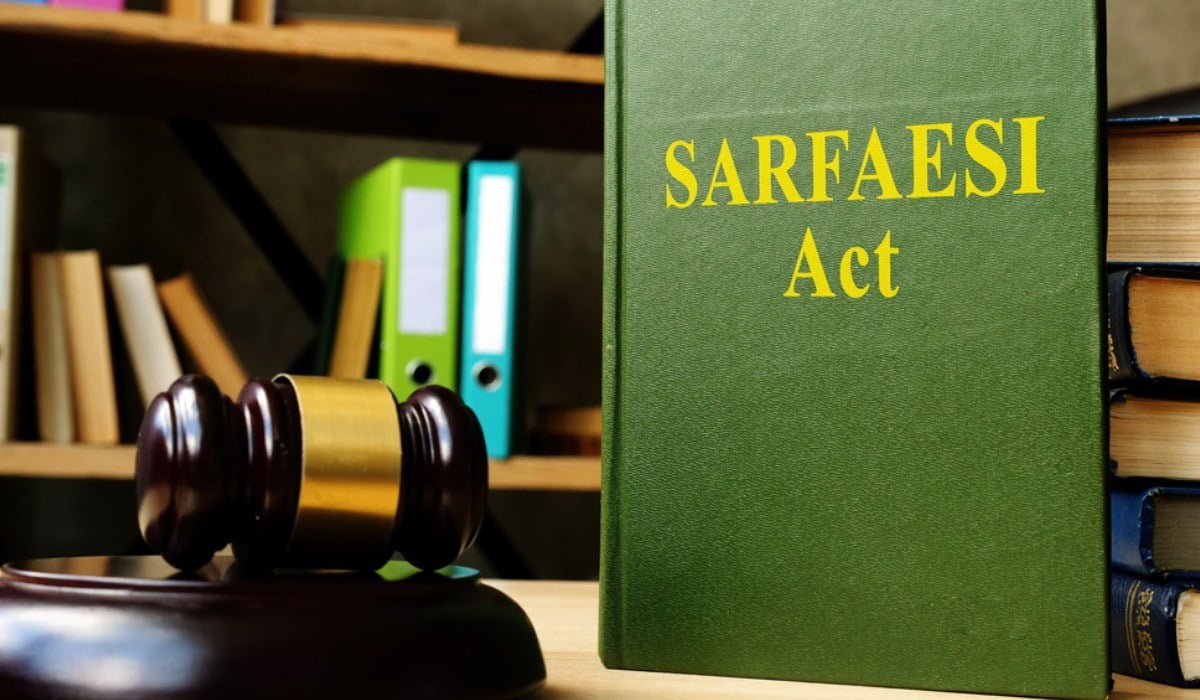In a landmark case Delhi High Court
The Delhi High Court, the intricacies of the Securitisation and Reconstruction of Financial Assets and Enforcement of Security Interest Act, 2002 (SARFAESI Act) and its interaction with the Recovery of Debts and Bankruptcy Act, 1993 (RDB Act) were scrutinized. The case centered around the petitioner’s application under Section 13(10) of the SARFAESI Act, seeking recovery of ₹6,92,551.63 along with interest, which was rejected by the Debts Recovery Tribunal III, Delhi. The tribunal contended that the claim did not meet the pecuniary jurisdiction threshold of ₹10,00,000, thus not falling within its ambit. The Delhi High Court, through its division bench comprising Justice Vibhu Bakhru and Justice Amit Mahajan, delved into the complex legal nuances surrounding the case.
The petitioner’s predicament stemmed from a Loan Agreement executed on December 30, 2015, with respondents 1 and 2. Under this agreement, the respondents created a security interest in a built-up property to secure the loan. Subsequently, due to the respondents’ failure to meet their repayment obligations, the loan was classified as a Non-Performing Asset (NPA). The petitioner issued a demand notice, requiring the respondents to pay ₹24,71,141.85, inclusive of interest and other charges, within 60 days. Following non-compliance, the petitioner, acting as a secured creditor, initiated proceedings under Section 14 of the SARFAESI Act.
The petitioner appointed a receiver to take possession of the property and subsequently sold it for ₹21,38,000. After adjusting the sale proceeds against the outstanding loan, a balance of ₹6,92,551.63 remained, leading to the application under Section 13(10) of the SARFAESI Act before the Debts Recovery Tribunal.
The main point of the matter hinged upon the interpretation of the SARFAESI Act and its intersection with the RDB Act, specifically regarding the jurisdiction of Debts Recovery Tribunals in cases of original actions for debt recovery under the SARFAESI Act. The Delhi High Court noted that while the SARFAESI Act confers appellate jurisdiction upon Debts Recovery Tribunals for challenges against measures taken by secured creditors under the SARFAESI Act, an application under Section 13(10) of the SARFAESI Act represents an original action for debt recovery. However, the SARFAESI Act lacks explicit provisions designating the appropriate Debts Recovery Tribunal for adjudicating such original claims post-security interest enforcement.
 The petitioner contended that Section 13(10) of the SARFAESI Act did not entail an application under the RDB Act, thereby challenging the applicability of the pecuniary jurisdiction stipulated in Section 1(4) of the RDB Act for cases under Section 13(10) of the SARFAESI Act. The petitioner argued against the parallel existence of two distinct regimes for debt recovery, maintaining that the legislative intent did not support such an interpretation.
The petitioner contended that Section 13(10) of the SARFAESI Act did not entail an application under the RDB Act, thereby challenging the applicability of the pecuniary jurisdiction stipulated in Section 1(4) of the RDB Act for cases under Section 13(10) of the SARFAESI Act. The petitioner argued against the parallel existence of two distinct regimes for debt recovery, maintaining that the legislative intent did not support such an interpretation.
The Delhi High Court carefully examined these contentions, emphasizing that an application under Section 13(10) of the SARFAESI Act must comply with prescribed forms and procedures, as outlined in the Security Interest (Enforcement) Rules, 2002. It noted that the SARFAESI Act does not empower Debts Recovery Tribunals to issue recovery certificates or provide substantive or procedural mechanisms for debt recovery. Consequently, the remedy under Section 13(10) of the SARFAESI Act cannot be perceived as an independent solution apart from the RDB Act.
The Delhi High Court elucidated that the application under Section 13(10) of the SARFAESI Act essentially constitutes an Original Application under Section 19(1) of the RDB Act, necessitating adjudication under the latter’s provisions. The Delhi High Court ruling underscored the interconnectedness of the SARFAESI Act and the RDB Act concerning debt recovery, emphasizing that applications under Section 13(10) of the SARFAESI Act are fundamentally Original Applications under the RDB Act.
This ruling carries profound implications for future cases involving debt recovery under the SARFAESI Act, providing clear guidance on the legal process, jurisdictional intricacies, and the relationship between the SARFAESI Act and the RDB Act.
The Delhi High Court decision highlights SARFAESI Act
The importance of legal clarity in matters concerning financial transactions, debt recovery, and creditor-borrower relationships. The ruling emphasizes the need for adherence to prescribed procedures, ensuring a streamlined and fair legal process for all parties involved. Moreover, it serves as a testament to the judiciary’s role in interpreting complex legislation and resolving legal ambiguities, thereby contributing to the development of a robust and equitable legal framework.
Must Read:- Karnataka High Court Suicide note mention doesn’t establish guilt under Section 306









Leave a Reply